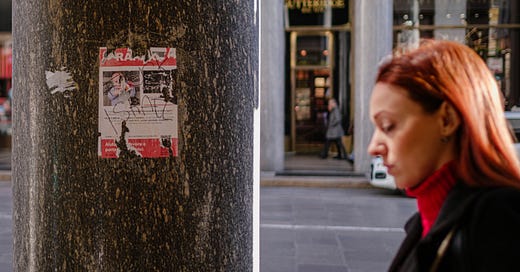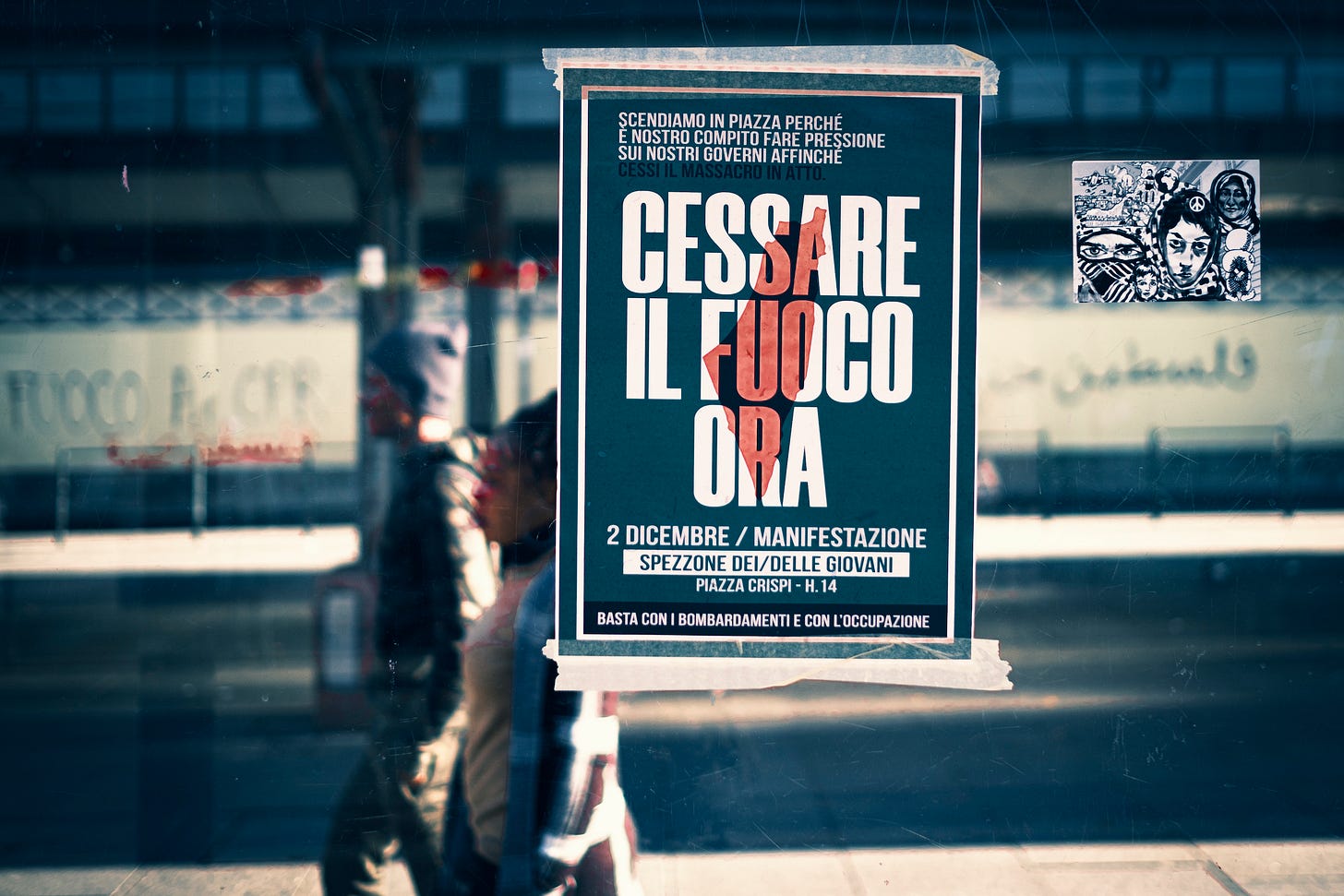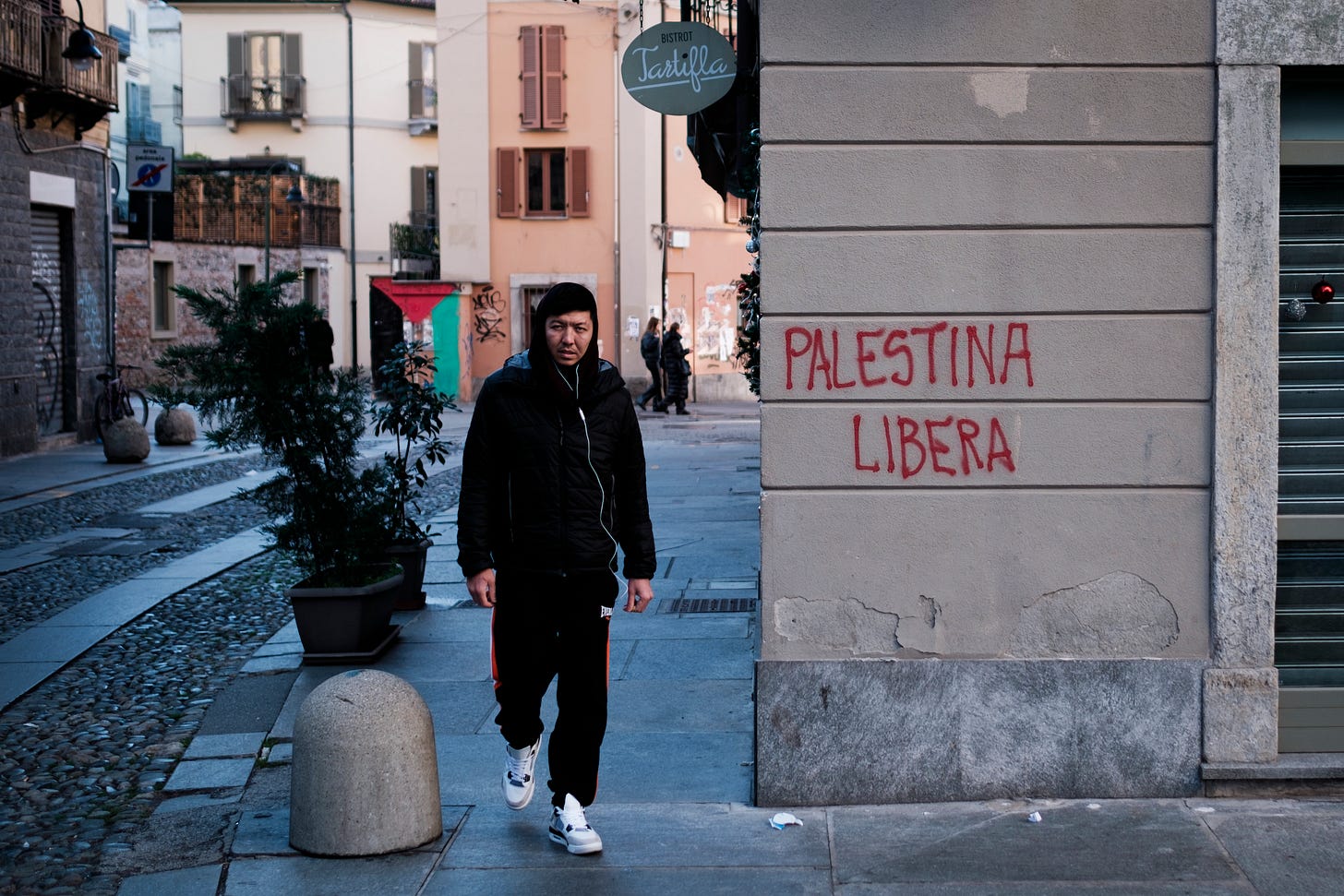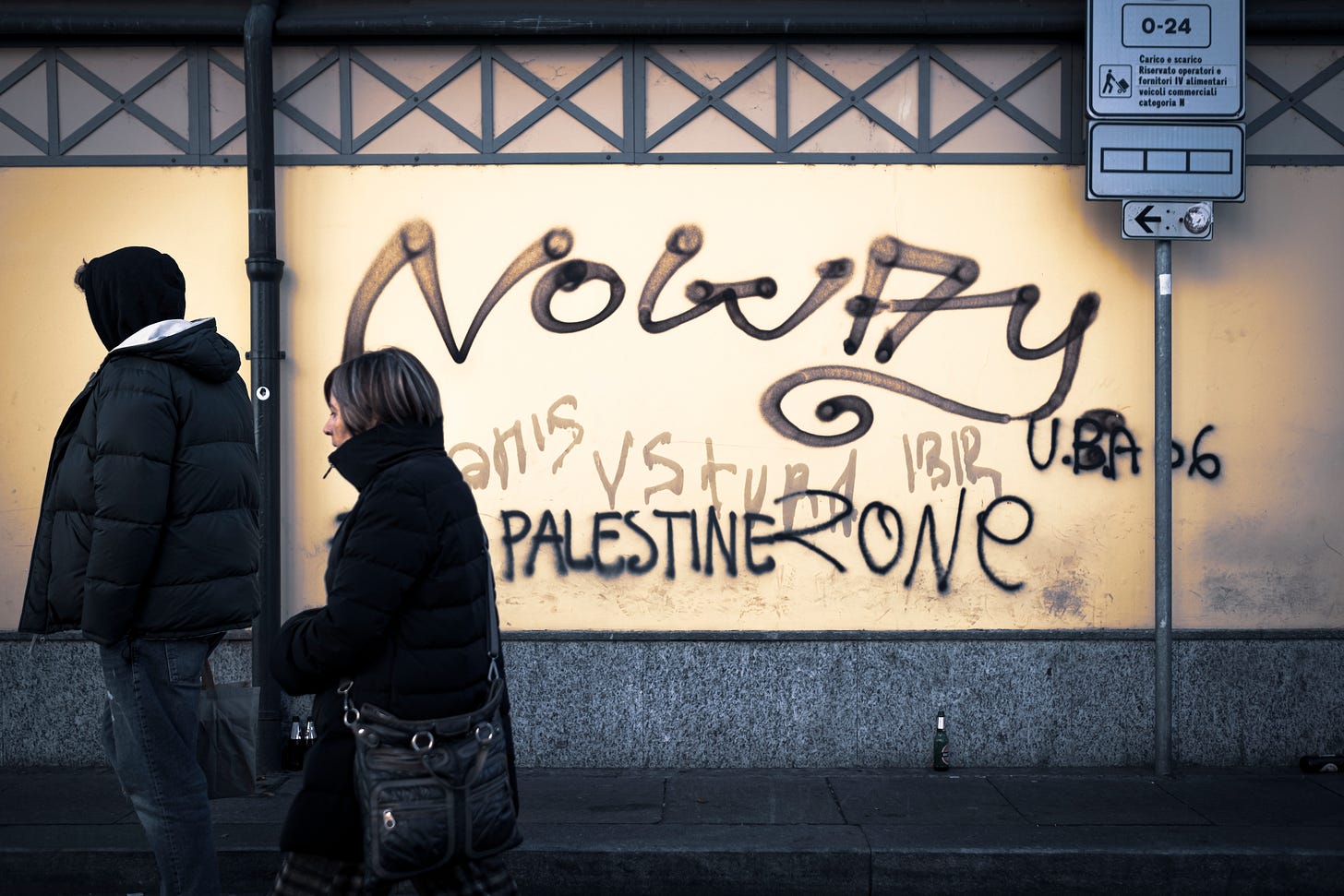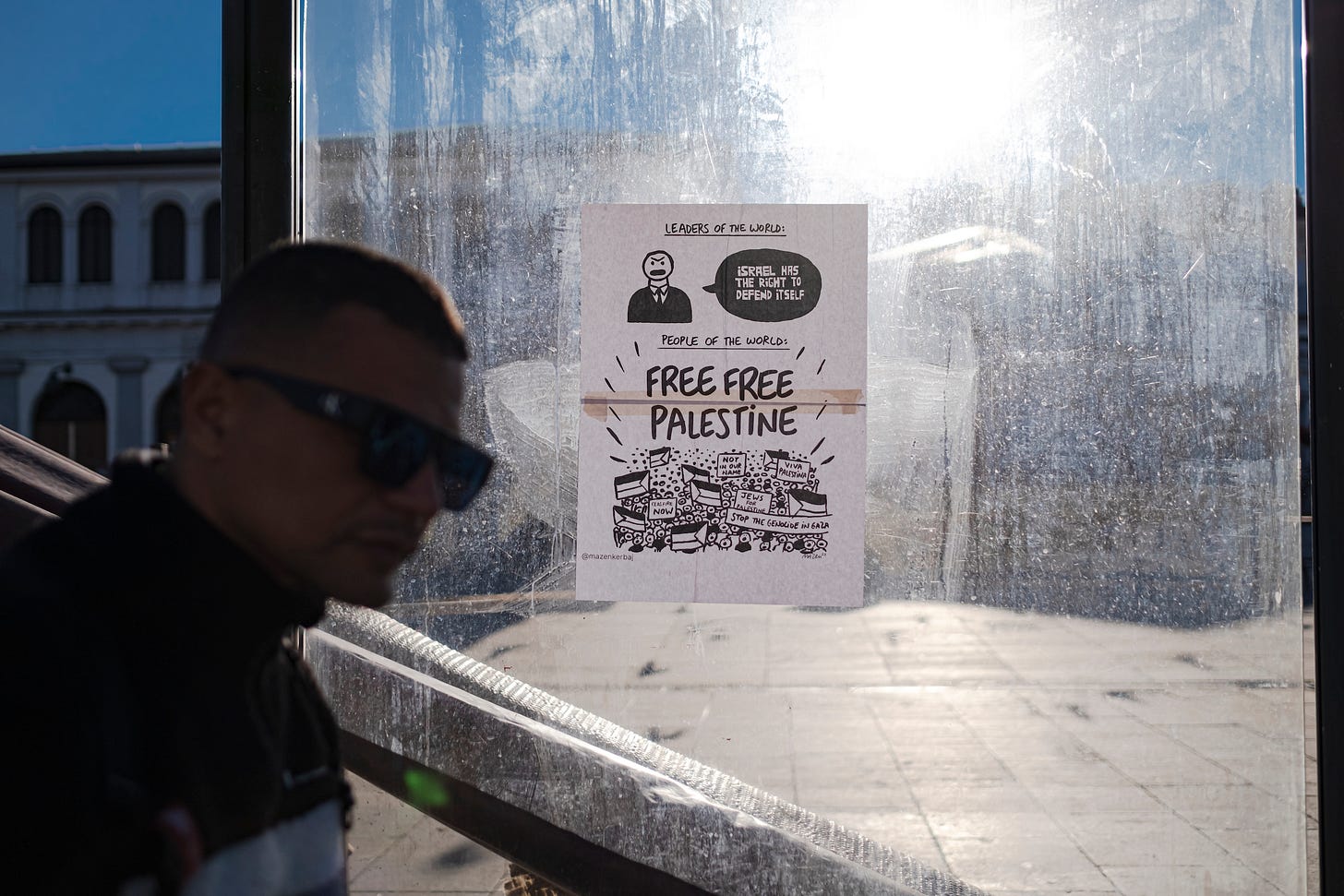By Joel Schalit
The flyers of Israeli captives still haven't come down.
Partially torn, covered in angry comments, nearly two months after the start of the war, they serve as a brutal reminder that Gaza is only a three-hour flight away.
Lining Torino's main commercial thoroughfare, Via Roma, their "Rapito" (Kidnapped) headline contrasts sharply with the elegant shoppers eagerly flooding the street's upmarket retailers.
This morning, I talked about the child featured in the flyer above with a cousin in Tel Aviv. Hamas had informed the Netanyahu government that Kfir Bibas and his mother had been killed in Israeli attacks.
Asked whether this was true, I said likely so. Hamas could have used them as bargaining chips in the prisoner exchanges that had just concluded. They would have traded them if they could.
This sad flyer, with the word "Israel" scrawled on it, was a reminder. Not just of what was probably the truth but the fact that the Sukkot War is nowhere near from being concluded.
Following the end of the proto-ceasefire dubbed pause, fighting resumed Friday, and a new antiwar protest was held in Torino on Saturday. Camera in hand, I'd come in search of the debris.
As much as I'd prefer to cover such events in Israel, reporting on them in Europe is more interesting. The political differences are huge, and the protests speak to outsiders, not Israelis.
These topics, by themselves, are newsworthy all on their own. Particularly how they tie together European diversity and immigration politics with the region's recent colonial past.
My own family history is a testimony to that. My father's family arrived in Ottoman Palestine from Odessa in the 1880s. My wife and I made the reverse commute back to Europe in 2008.
****
Photographs courtesy of Joel Schalit. All rights reserved.

